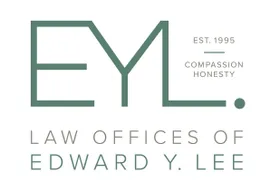Damages In Wrongful Death Cases

Wrongful Death
In a wrongful death case, damages refer to the monetary compensation awarded to the surviving family members or beneficiaries of a deceased individual who died as a result of another party’s negligent, reckless, or intentional actions. Damages in wrongful death cases aim to compensate the survivors for the financial and emotional losses they have suffered due to the death of their loved one. Understanding the types of damages available in wrongful death cases is crucial for both plaintiffs and defendants in assessing the value of the claim and seeking appropriate compensation.
1. Economic Damages:
- Loss of Financial Support: One of the primary economic damages in wrongful death cases is the loss of financial support that the deceased would have provided to their family members had they survived. This may include lost income, wages, benefits, and other forms of financial support the deceased would have contributed over their expected lifetime.
- Loss of Services: Surviving family members may also be entitled to compensation for the loss of household services and support that the deceased would have provided, such as childcare, household chores, home maintenance, and other tasks.
- Medical and Funeral Expenses: Damages may include reimbursement for medical expenses incurred prior to the decedent’s death as well as funeral and burial expenses.
2. Non-Economic Damages:
- Pain and Suffering: Surviving family members may be entitled to compensation for the pain, suffering, and mental anguish caused by the loss of their loved one. This can include the emotional distress experienced by family members as a result of the death, as well as the decedent’s pain and suffering prior to death if applicable.
- Loss of Consortium: Damages may be awarded for the loss of companionship, guidance, and support that the deceased would have provided to their spouse, children, or other family members. This can include the loss of love, affection, and emotional support that the decedent would have contributed to their family members’ lives.
3. Factors Affecting Damages:
- Age, Health, and Life Expectancy of the Decedent: The age, health, and life expectancy of the deceased individual may influence the amount of damages awarded. Younger individuals with longer life expectancies and greater earning potential may result in higher damages awards.
- Financial Contributions of the Decedent: The financial contributions, earning capacity, and economic value of the decedent’s services to their family members are significant factors in calculating economic damages.
- Relationships and Dependents: The nature of the relationships between the decedent and their surviving family members, as well as the number of dependents relying on the decedent for support, may also impact the amount of damages awarded.
Damages in wrongful death cases aim to compensate surviving family members for the financial and emotional losses they have suffered as a result of the death of their loved one. Economic damages reimburse for financial losses such as lost income and expenses, while non-economic damages address intangible losses such as pain and suffering and loss of companionship. Punitive damages may be awarded in cases involving particularly egregious conduct. Seeking legal representation from a Wrongful Death Lawyer from a law firm like the Law Office of Daniel E. Stuart, P.A. and expert testimony is crucial for both plaintiffs and defendants in assessing the value of the claim and pursuing appropriate compensation.
Note: The information provided in this blog post about injury car accidents in Los Angeles is for general informational purposes only and should not be considered legal advice.
Disclaimer: No attorney-client relationship is established by accessing or using this information. Readers should consult with a qualified attorney for advice specific to their situation. The authors make no representations regarding the accuracy or suitability of the information provided and disclaim any liability for reliance on it. Laws and regulations may vary and are subject to change.



